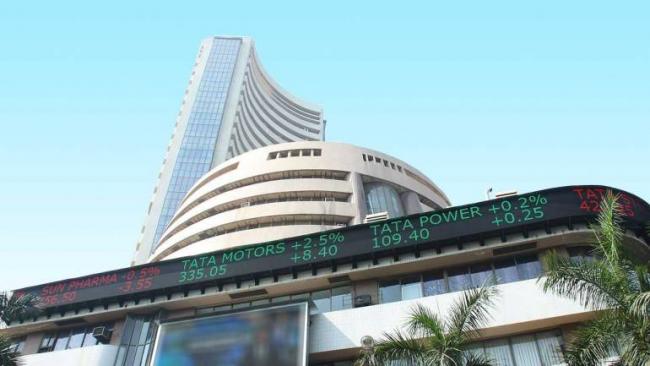Indian Equity Indices Will Be Guided By Karnataka Election Results

Domestic political cues, particularly the outcome of the assembly election in Karnataka, along with the fourth quarter earning results are expected to influence the equity market's trajectory next week.
Market observers opined that the release of macro-economic data points on retail and wholesale inflation, coupled with global cues such as volatility in global crude oil prices will also impact investors' risk-taking appetite.
"The big market moving event next week will be the Karnataka elections outcome especially BJP's performance," Devendra Nevgi, Founder and Principal Partner, Delta Global Partners, told IANS.
"Crude oil prices, US-Iran developments and earnings would be closely monitored."
Besides the electoral outcome, analysts cited the upcoming macro-economic data points such as the retail (CPI) and wholesale (WPI) inflation numbers as well as the "Balance of Trade" figure as the other major theme for the Indian stock market.
Accordingly, the Central Statistics Office (CSO) is slated to release the macro-economic data points of CPI and WPI on May 14.
"Markets would also monitor the CPI and trade deficit data next week. A higher than expected CPI would trigger a rise in bond yields, though the weaker IIP data would mitigate some of the rise," Nevgi said.
According to D.K. Aggarwal, Chairman and Managing Director of SMC Investments and Advisors: "Macroeconomic data, next batch of quarterly earnings, trend in global markets, the movement of rupee against the dollar and crude oil prices will dictate the trend of the stock market going forward."
Apart from the macro-data points, Q4 results will determine key indices' trajectory. Companies like Abbott India, Hindustan Unilever, Britannia Industries, Lupin, Punjab National Bank, Axis Bank, Hindalco Industries, ITC, Tata Steel, Welspun India, Voltas are expected to announce their Q4 earning results next week.
"The next phase of results will be crucial as any deviation will create further downgrades... Surging oil prices and weak INR are expected to impact inflation while easing geopolitical tension will add fuel to the market," said Vinod Nair, Head of Research at Geojit Financial Services.
"On the broad market, open market operations by RBI will help soothe the frayed nerves in the bond market and bring stability in INR. However, the out flow of foreign funds due to rich valuation is a concern to the market."
In terms of investments, last week's provisional figures from the stock exchanges showed that foreign institutional investors sold scrips worth Rs 2,126.74 crore.
Similarly, figures from the National Securities Depository (NSDL) revealed that foreign portfolio investors (FPIs) divested equities worth Rs 2,678.35 crore, or $399.75 million, in the week ended May 11.
On the currency front, the rupee weakened by 46 paise to close at 67.33 against the dollar from its previous week's close at 66.87 per greenback.
Conversely, on technical charts, the underlying trend for the National Stock Exchange's (NSE) Nifty remains "firm".
"Technically with the Nifty surging higher and closing above the 10,800 points levels, the underlying trend remains firmly up," said Deepak Jasani, Head of Retail Research for HDFC Securities.
"Further upsides are likely once the immediate resistance of 10,878 points is taken out. Crucial supports to watch for any weakness are at 10,635 points."
Last week, healthy Q4 earnings and positive global cues including easing tensions between the US and North Korea lifted the key Indian equity indices. However, caution prevailed ahead of the assembly elections in Karnataka.
On a weekly basis, the barometer 30-scrip Sensitive Index (Sensex) of the BSE rose by 620.41 points or 1.78 per cent to close at 35,535.79 points.
In addition, the wider Nifty50 of the National Stock Exchange (NSE) closed trade with appreciable gains. It ended last week's trade at 10,806.50 points -- up 188.25 points or 1.77 per cent from its previous week's close.
IANS




